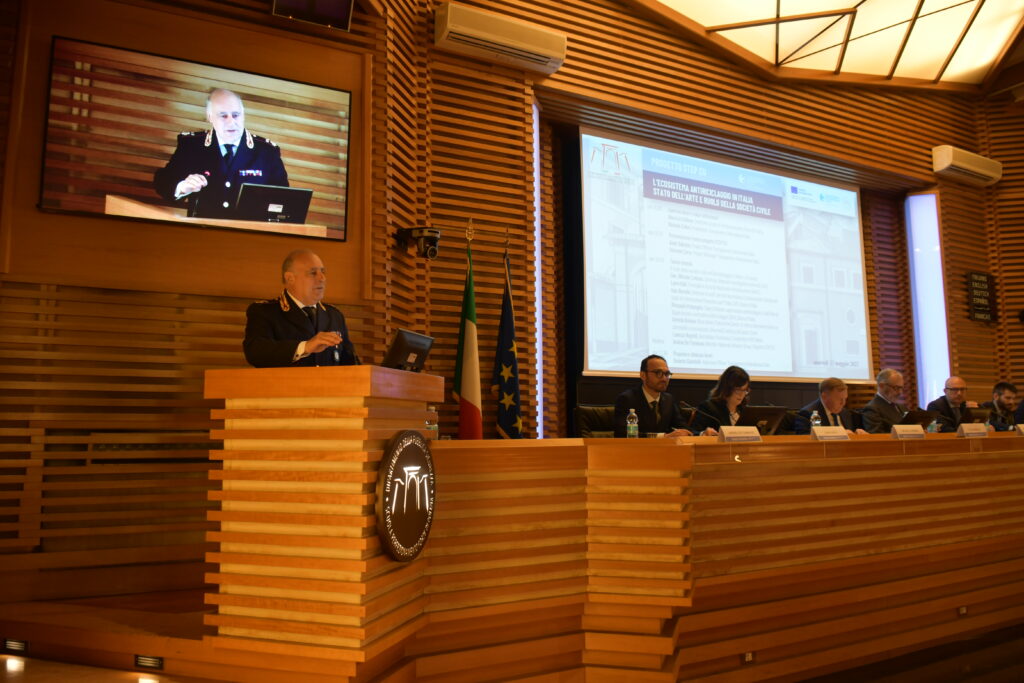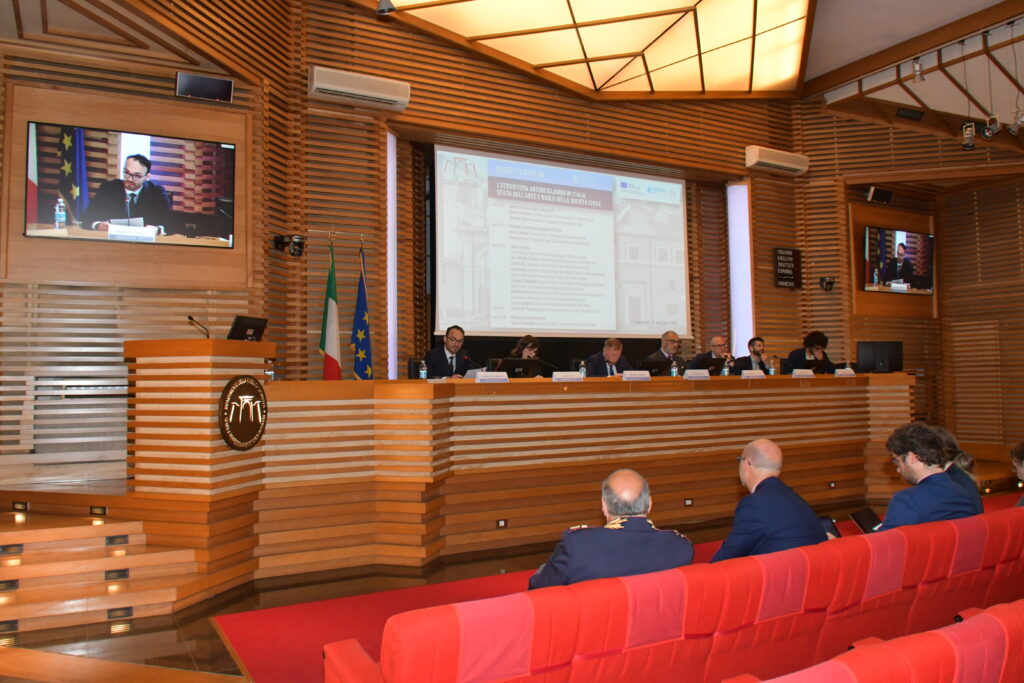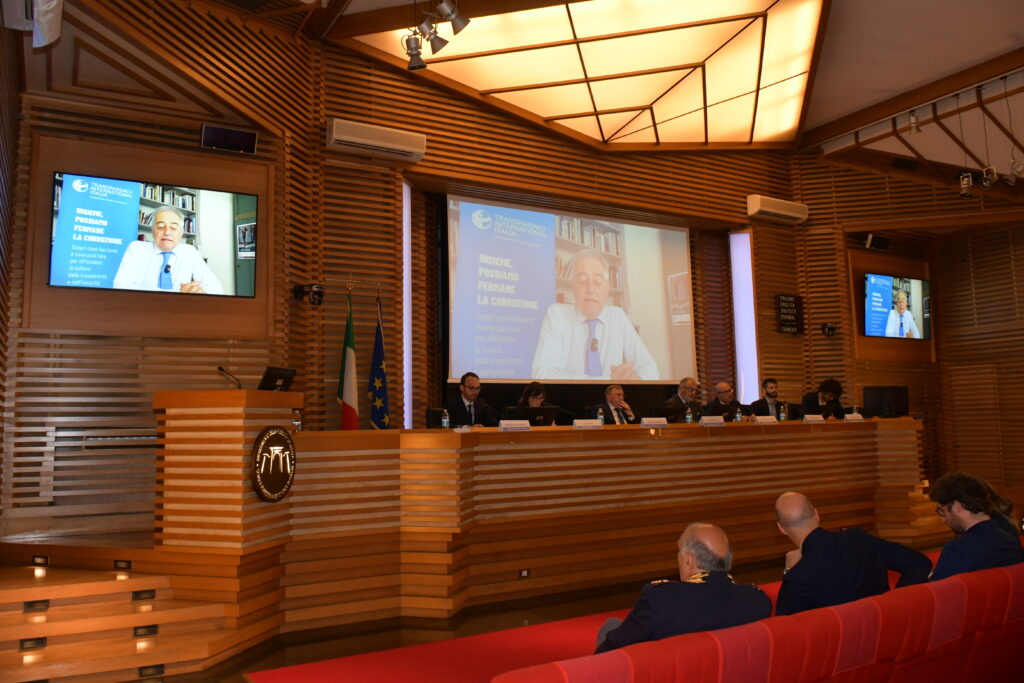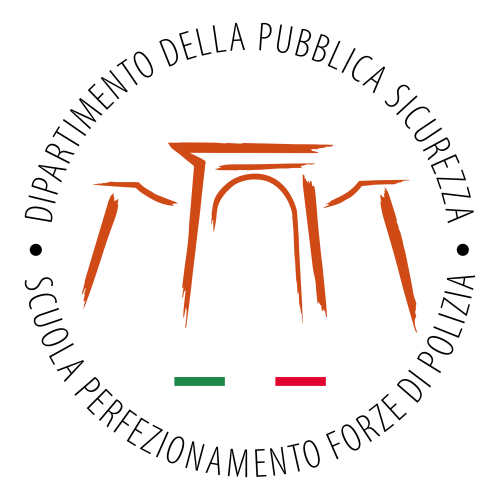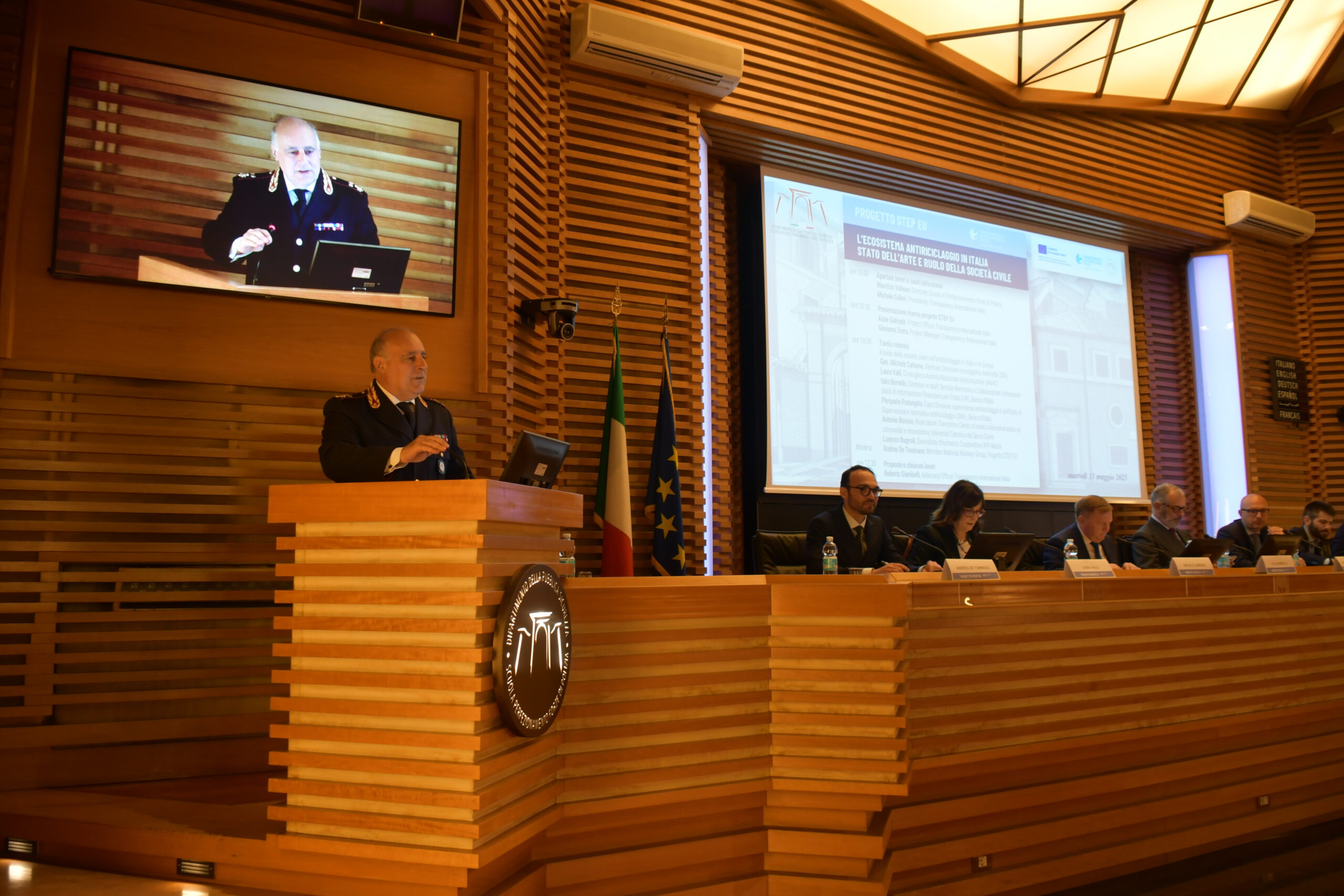On 13 May, the event ‘The anti-money laundering ecosystem in Italy: state of the art and the role of civil society’, promoted by Transparency International Italia within the European project STEP EU – Strengthened Enforcement Capacities of Public Authorities in the European Union, was held at the ‘Prefetto Carlo Mosca’ conference hall of the Scuola di Perfezionamento per le Forze di Polizia.
The meeting was attended by representatives from institutions, police forces, academia and investigative journalism, with the aim of promoting a discussion between the various institutions on the intersection between anti-money laundering and anti-corruption. The outcome was a key message: strengthening cooperation between public authorities and civil society is crucial to effectively counter illicit financial flows.
The meeting opened with the intervention of Maurizio Vallone, Director of the Scuola di Perfezionamento per le Forze di Polizia and that of Michele Calleri, President of Transparency International Italia connected remotely. Both stressed the need for a combined approach to prevention, based on integration between institutional actors and the active participation of civil society.
The core of the initiative was the presentation of the findings of the research carried out within the STEP EU project, illustrated by Aiste Galinyte and Giovanni Zorra from Transparency International Italia. The study offers an overview of critical issues and good practices in the anti-money laundering systems of EU Member States, highlighting how the civil society can contribute in terms of monitoring, prevention and awareness-raising.
The round table, entitled ‘The Role of Civil Society in Anti-Money Laundering in Italy and Europe’, was moderated by Andrea De Tommaso (member of the National Advisory Group of the STEP EU project) and was attended by prominent experts and institutional figures.
Speakers included Michele Carbone, Director of Direzione Investigativa Antimafia (Anti-mafia Investigative Directorate), Laura Valli, member of the governing board of Autorità Nazionale Anti-Corruzione (National anti-Corruption Authority), Italo Borrello and Pierpaolo Fratangelo, representatives of Banca d’Italia (the Italian Central Bank), Antonio Bosisio, researcher at the Transcrime inter-university centre and Lorenzo Bagnoli, investigative journalist and co-director of IRPI Media.
The debate stressed the need to overcome an exclusively repressive vision of the phenomenon and to promote instead an anti-money laundering ecosystem based on cooperation, transparency and shared responsibility, as reiterated by Dr Roberto Giambelli, Advocacy Officer Transparency International Italia, during the conclusion phase.
The participants agreed on the key role of civil society, both in promoting a culture of legality and in contributing to the enforcement of regulations through advocacy and monitoring activities.
The initiative reaffirmed Transparency International Italia’s commitment to facilitating dialogue between the public and private sectors, in a European context that requires a strengthening of institutional capacities and a growing multi-level synergy to systematically counter economic crime.
